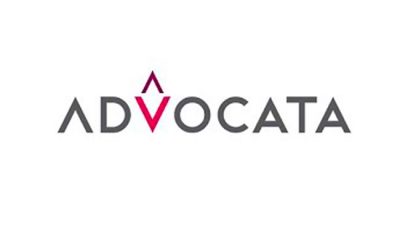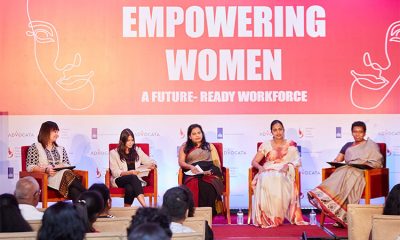Business
Advocata Institute releases comprehensive report on the tea industry of Sri Lanka

Advocata Institute released its latest report titled “Market Competitiveness of the Tea Industry of Sri Lanka” on Thursday, December 28, 2023. The report is authored by Sudaraka Ariyaratne, Research Consultant at Advocata Institute.
The report begins with an introductory chapter that details the historical evolution of the island’s tea industry. The report finds that the present standing of the industry in the context of the international market is not too grim, but argues that issues related to the labour market, capital investment, value addition, and quality control limit the industry’s competitiveness in the global stage. The rest of the report takes the form of four discussion papers, each on the four areas of concern listed above, that present an economic theory-based lens to approach these issues, and discuss potential solutions.
The attendance-based minimum wage model is partly responsible for the high costs of production of Sri Lanka’s RPCs, and their low productivity, helping make Ceylon tea uncompetitive in the international market. In contrast, the smallholder sector, with its market-based wage model, stands out as a more efficient counterpart. Despite being billed as a guarantor of a living wage, the minimum wage model imposes a ceiling on the earnings of estate workers, and also helps preserve the traditional power structures of tea plantations, in which estate workers sit at the bottom. Discussion Paper 1 establishes an economic framework to analyse the minimum wage model, and explores the strategies that RPCs could pursue, with the help of policymakers and other stakeholders of interest, to enhance the industry’s competitiveness under the minimum wage model. The paper also evaluates alternative wage models proposed by stakeholders, that take a more market-based approach to employment within the industry.
Long-term capital investments, such as replanting and infilling, are an essential element of sustained land productivity in the tea industry of Sri Lanka; however, neither RPCs, nor smallholders, seem incentivised to undertake investments of this form. Discussion Paper 2 establishes an economic framework, based on the Growth Diagnostic Framework by Hausmann, Rodrik, and Velasco (2005), to discern the causes of low levels of long-term capital investments in Sri Lanka’s tea estates. The paper finds that to varying degrees, the low rate of returns, uncertainties about the appropriability of returns, and low savings prevent RPCs and smallholders from embarking on long-term capital investments into tea lands. The paper explores the different routes the industry may take, with the help of policymakers and other relevant parties, to overcome these binding constraints to long-term investments, to facilitate the long-term sustenance of the industry.
Sri Lanka has the highest level of domestic value addition among black tea producing countries, but little is known about the economics of value addition. Discussion Paper 3 explores what it means to add value to made tea, what explains the present levels of value addition in the Sri Lankan tea industry, and how profits from value addition are distributed along the value chain. Additionally, the paper establishes an economic framework, based on Porter’s competitive advantage theory, to approach value addition from a strategic point of view, with the aim of optimising returns to the local industry. Based on this framework, the paper explores different strategies the industry may pursue, either in the mass market or in the specialty market, to increase the international competitiveness of Ceylon tea, and enhance the returns to the domestic stakeholders.
Quality is an important determinant of the premium that Ceylon tea fetches in the international market. In the absence of symmetric information between the buyers and sellers of Ceylon tea, high quality sellers receive lower prices than they deserve, which both drives them out of the market, and lowers the overall price and quality of Ceylon tea. Discussion Paper 4 establishes an economic framework, based on George Akerlof’s theory of adverse selection and the theoretical foundations of economics of trust, to understand how asymmetric information on quality negatively impacts the market for Ceylon tea. The paper also explores several strategies, both regulatory and incentive-based, that policymakers and industry stakeholders may pursue to eliminate asymmetric information from the market for Ceylon tea, in order to enhance the premiums that the industry receives.
The report is set to be presented to President Ranil Wickremesinghe, Ministers Mahinda Amaraweera and Jivan Thondaman, and relevant stakeholders of the tea industry in the coming days.
The report on Market Competitiveness of the Tea Industry of Sri Lanka can be accessed on www.advocata.org
Advocata is an independent policy think tank based in Colombo, Sri Lanka. We conduct research, provide commentary and hold events to promote sound policy ideas compatible with a free society in Sri Lanka. Visit advocata.org for more information.
Advocata spokespersons are available for live and pre-recorded broadcast interviews via 0740289818
Business
AHK Sri Lanka champions first-ever Sri Lankan delegation at Drupa 2024

The Delegation of German Industry and Commerce in Sri Lanka (AHK Sri Lanka) proudly facilitated the first-ever Sri Lankan delegation’s participation at Drupa 2024, the world’s largest trade fair for the printing industry and technology. Held after an eight-year hiatus, Drupa 2024 was a landmark event, marking significant advancements and opportunities in the global printing industry.
AHK Sri Lanka played a pivotal role in organising and supporting the delegation, which comprised 17 members from the Sri Lanka Association for Printers (SLAP), representing eight companies from the commercial, newspaper, stationery printing, and packaging industries. This pioneering effort by AHK Sri Lanka not only showcased the diverse capabilities of Sri Lanka’s printing sector but also facilitated vital bilateral discussions with key stakeholders from the German printing industry.
Business
Unveiling Ayugiri: Browns Hotels & Resorts sets the stage for a new era in luxury Ayurveda Wellness

In a captivating reimagining of luxury wellness tourism, Browns Hotels & Resorts proudly unveiled the exquisite Ayugiri Ayurveda Wellness Resort Sigiriya. This momentous occasion, celebrated amidst a vibrant and serene grand opening on the 6th of June, heralds a new chapter in the Ayurveda wellness tourism landscape in Sri Lanka. Nestled amidst 54 acres of unspoiled natural splendour, Ayugiri features 22 exclusive suites and stands out as the only luxury Ayurveda wellness resort in the country offering plunge pools in every room, rendering it truly one-of-a-kind.
The grand opening of Ayugiri Ayurveda Wellness Resort was an enchanting event, where guests were captivated by the melodies of flutists and violinists resonating through Sigiriya’s lush landscapes. As traditional drummers and dancers infused the air with vibrant energy, Browns Hotels & Resorts’ CEO, Eksath Wijeratne, Kotaro Katsuki, Acting Ambassador for the Embassy of Japan and General Manager, Buwaneka Bandara, unveiled the resort’s new logo, marking a significant moment witnessed by distinguished guests from the French Embassy, Ayurveda and wellness enthusiasts along with officials from the Sigiriya area, LOLC Holdings and Browns Group.
“Our strategic expansion into wellness tourism with Ayugiri Ayurveda Wellness Resort Sigiriya symbolises a significant milestone for Browns Hotels & Resorts. Wellness tourism has consistently outperformed the overall tourism industry for over a decade, reflecting a growing global interest in travel that goes beyond leisure to offer rejuvenation and holistic well-being. By integrating the timeless wisdom of Ayurveda with modern luxury, we aim to set a new standard in luxury wellness tourism in Sri Lanka. Whether your goal is prevention, healing, or a deeper connection to inner harmony, Ayugiri offers a sanctuary for holistic well-being” stated Eksath Wijeratne.
Ayugiri encapsulates the essence of life, inspired by the lotus flower held by the graceful queens of the infamous Sigiriya frescoes. Just as the lotus emerges from the murky depths, untainted and serene,
Ayugiri invites guests on a journey of purity and rejuvenation, harmonised with a balance of mind, body and spirit, the essence of nature, echoes of culture and the wisdom of ancient Ayurvedic healing.
Business
HNB General Insurance recognized as Best General Bancassurance Provider in Sri Lanka 2024

HNB General Insurance, one of Sri Lanka’s leading general insurance providers, has been honored as the Best General Bancassurance Provider in Sri Lanka 2024 by the prestigious Global Banking and Finance Review – UK.
The esteemed accolade underscores HNB General Insurance’s unwavering commitment to excellence and its outstanding performance in the field of bancassurance. Through dedication and hard work, the HNB General Insurance team has continuously endeavored to deliver innovative insurance solutions, cultivate strong relationships with banking partners, and provide unparalleled service to customers nationwide. This recognition is a testament to the team’s dedication and relentless pursuit of excellence in the bancassurance business.
“We are honored to receive this prestigious award, which reflects our team’s tireless efforts and dedication to delivering value-added insurance solutions and exceptional service through our bancassurance partnerships,” said Sithumina Jayasundara, CEO of HNB General Insurance. “This recognition reaffirms our position as a trusted insurance provider in Sri Lanka and motivates us to continue striving for excellence in serving our customers and communities.”


















